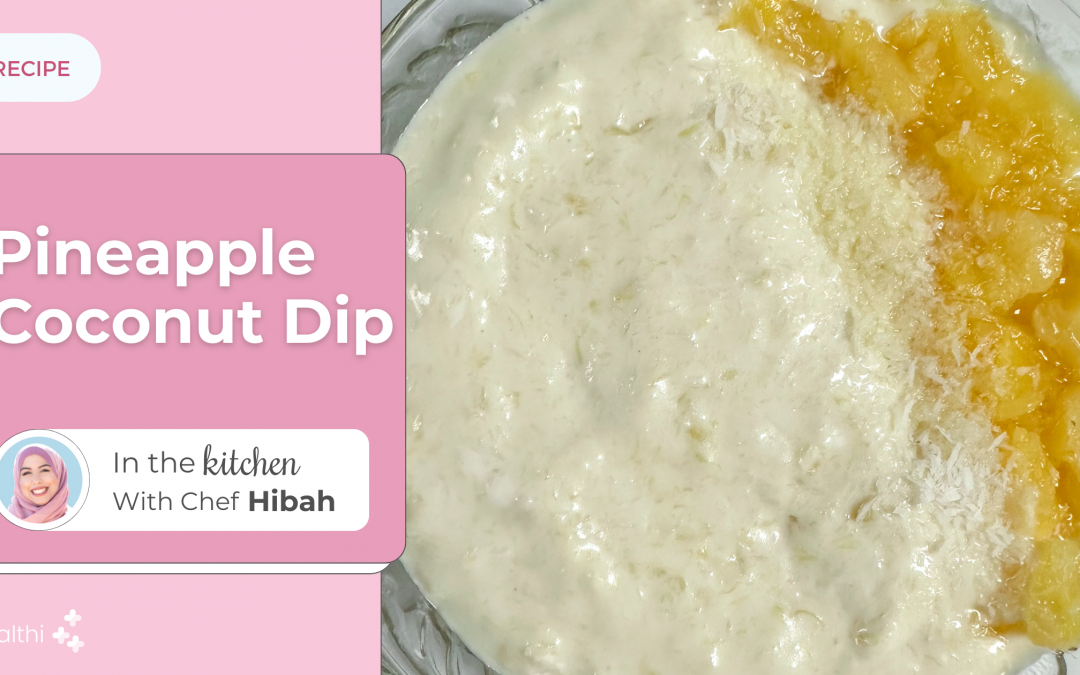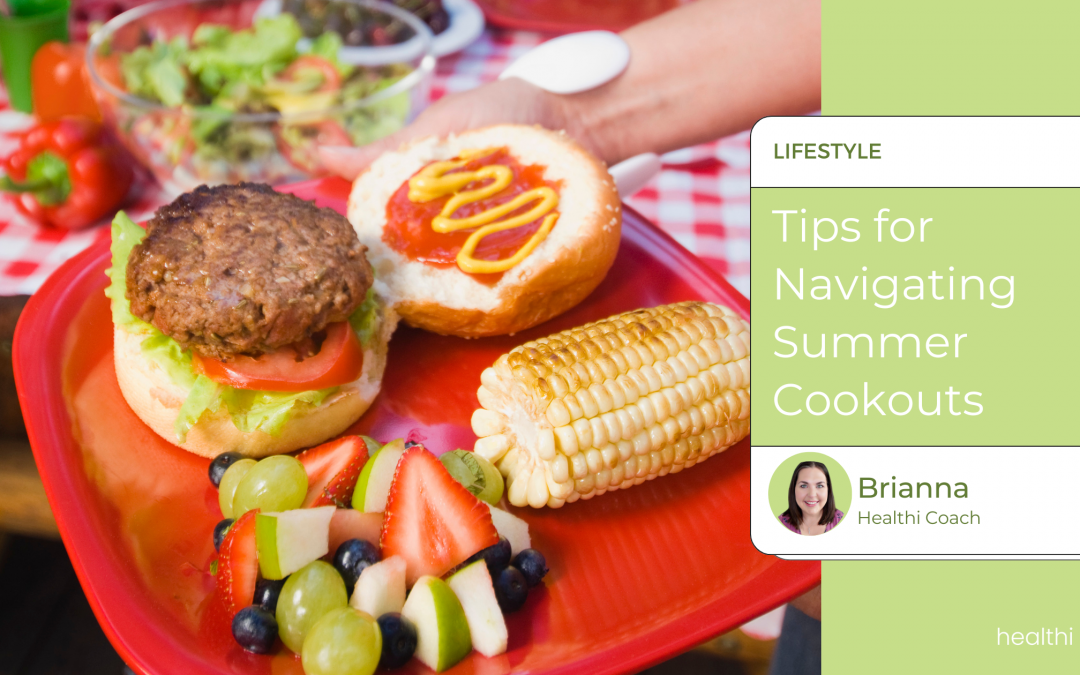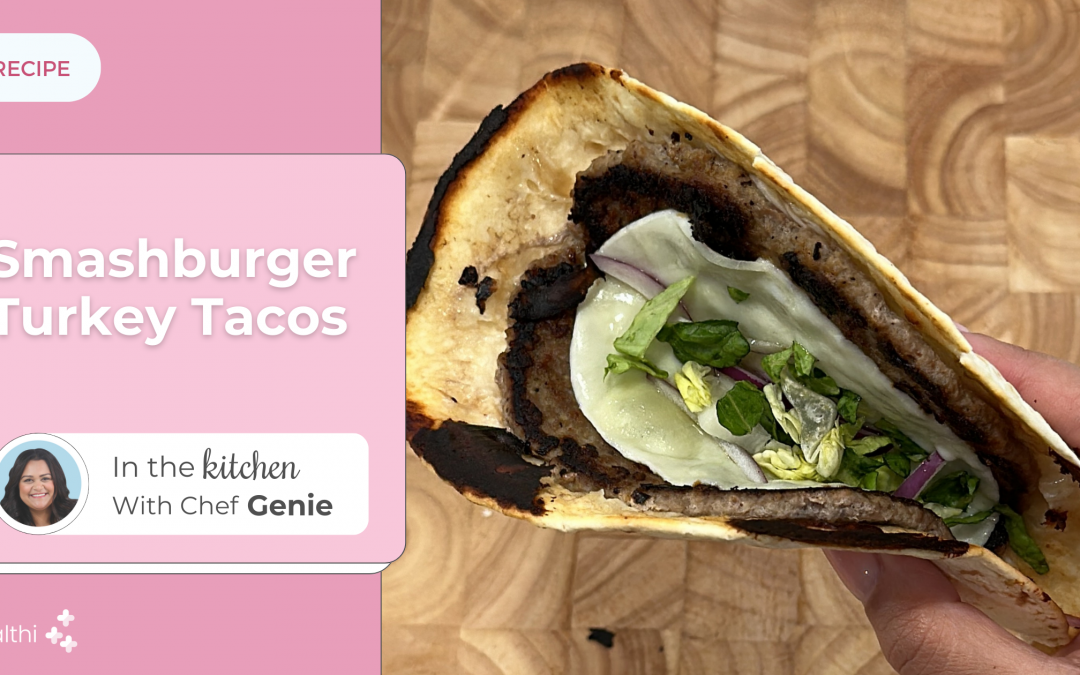Calories!
Sure, calories do matter when trying to shed some pounds – burn more calories than you take in each day, and the weight would be reluctant to stay another minute!
But it doesn’t mean you have to keep meticulous tabs on your calories to ensure you’re eating ‘enough.’ If you’ve been doing this, mealtimes must be about as exciting as taking a math class!
So, put away your pens and logbook already because you don’t have to keep track of your calories anymore. I’m about to share with you some tips that will help you slim down without having to obsess about every last calorie you put into your body. If you stick to these tips, you’ll start losing weight, feeling better, and I promise that your stomach won’t keep buzzing at you to tell you it’s hungry!
So, settle in!
Table Of Contents
- Make A Meal Plan
- Know The Calorie Content Of Your Favorite Foods
- Try To Eat In Peace
- Make Fat Your Friend
- Improve Your Protein Intake
- Don’t Stress
- Cut Back On Sugar
- Downsize Your Plate
Tip 1: Make A Strategy
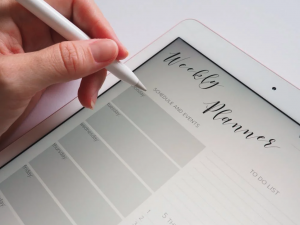
When you don’t have a solid strategy for your diet, you can end up making some unhealthy choices (like getting some takeout after a hard day at work), and the urge to track your caloric intake might strike. Plus, have you ever noticed that each time you go through the taxing process of deciding what to make for dinner, your willpower starts to wane a little more? So, instead of worrying about what to eat, prepare meals in advance. But if you’re unsure about the meal plan that works right for your body, get a customized meal plan from the Healthi app! With this strategy, not only will you be able to trim unnecessary calories from your diet, but also take charge of your eating habits.
Tip 2: Know The Calorie Content Of Your Favorite Foods

To reduce weight, generating a caloric deficit is one strategy, but calorie counting doesn’t have to be the other. You may just keep a rough estimate of the calories in your favorite meals rather than stressing yourself out by measuring, tracking, and counting every single calorie in every single meal. The simplest way out would be to memorize the number of calories in your favorite burrito or probably have a fair idea of the number of calories in a single serving of your go-to smoothie. This is definitely one of the finest alternatives to tracking calories when it comes to being conscious of your calorie consumption while still keeping your mental faculties intact!
Tip 3: Try To Eat In Peace

Okay, I get it; it’s not always possible, more so if you’re a person who’s constantly on the move. But if you tend to eat while working, watching TV, or scrolling through your phone, you should reconsider your eating habits – or accidental over-eating is inevitable. When you eat in peace and quiet and actually pay heed to the satiety signals your body sends you, you won’t treat every meal as though it were your first. When you were younger, your mom probably harped on you about not leaving any food on your plate, but in retrospect, it seems like a smart move. It’s a good indicator that you’re listening to your body and giving it what it needs, even if it means you’re going to have some leftovers.
Tip 4: Make Fat Your Friend

Once you begin to make peace with fats, you may put away the calorie counter. Of course, we’re only talking about the good fats here – like olive oil, avocados, nuts, and fish! These are the fats that can fill you up, improve your absorption of essential, fat-soluble nutrients, and may even facilitate weight loss by raising levels of hormones that speed up metabolism and burn fat, such as adiponectin.
Tip 5: Up Your Protein Intake
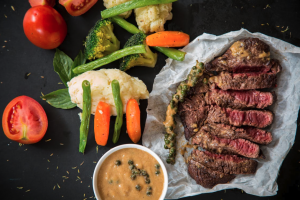
Rather than maintaining an extensive calorie journal, try eating more protein at each meal – and yes, the carbs in those bowls of spaghetti count too. This slow-digesting macronutrient helps in sating one’s hunger pangs, suppresses midnight cravings, and boosts your metabolism by feeding your calorie-burning muscles directly.
Tip 6: The Stress in Your Life Needs to Go Down

There are many ways stress can wreak havoc on your body, but one of the most obvious is its impact on your capacity to burn fat, especially in the belly area.
Do you know who’s to blame?
It’s cortisol, “the stress hormone.”
When we feel threatened or stressed, our bodies release cortisol. If your cortisol levels are too high, you won’t be able to resist eating that extra donut you don’t need, and that’s terrible news for your belly, ultimately causing more anxiety by increasing the urge to monitor your calorie intake. In this situation, your best bet would be to lower your cortisol levels. Just add extra carbs (like brown rice or whole wheat pasta) to your diet, and you’ll be good to go. But not too many, though, or you might pile on the pounds.
Tip 7: Cut Back On Sugar
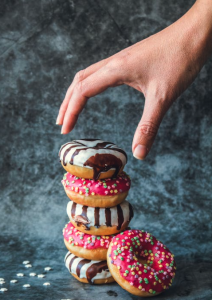
If you just cut back on your sugar intake, you won’t ever need to track calories. With almost no nutritional value, white table sugar is an empty calorie. Additionally, a high-sugar diet has a harmful effect on how your body reacts to insulin. When these two factors are combined, you become perpetually peckish and more prone to overeating, loading up on sugar to make yourself feel full. If you desire instant satiety that lasts with just the right quantity of sugar, nothing beats a healthy serving of fruits and veggies served with a little dip and other high-fiber foods.
Tip 8: Downsize Your Plate

Having to weigh out chicken breasts and measure out precise tablespoons of rice makes eating feel more like a chore than a necessity. Instead, you could just get a new set of smaller plates and cut your servings in half. As an alternative, you may even invest in portion-control plates that will enable you to create the perfect serving sizes! A full plate may give your brain the impression that it is taking in more calories than it would if the same quantity of food was presented in a more modest manner on a larger plate. In simple words, investing in smaller plates is a surefire way to stop worrying about calorie counting or binge eating.
In the mood for a quick recap?
I realize I just threw a lot at you, but I really need you to know what to do now:
1. Make A Meal Plan
2. Know The Calorie Content Of Your Favorite Foods
3. Try To Eat In Peace
4. Make Fat Your Friend
5. Improve Your Protein Intake
6. Don’t Stress
7. Cut Back On Sugar
8. Downsize Your Plate
While you’re at it, try not to worry too much about calories. You deserve better, and these eight tips will have you well on your way!







